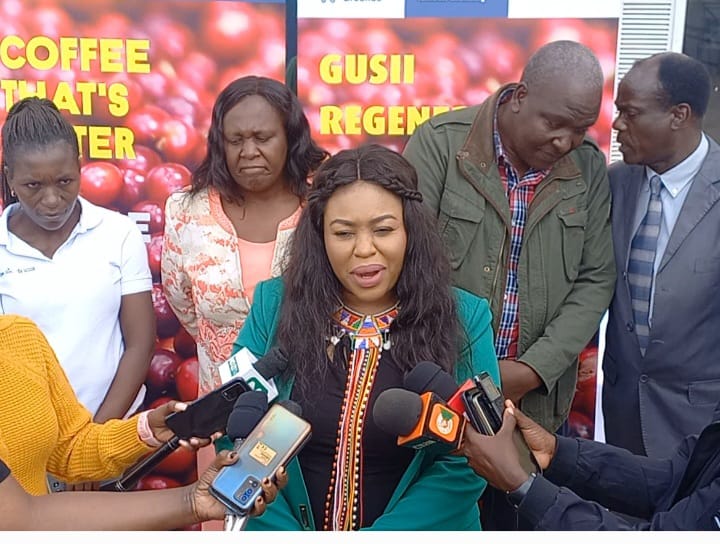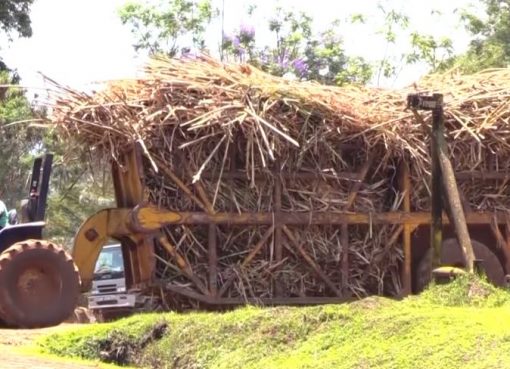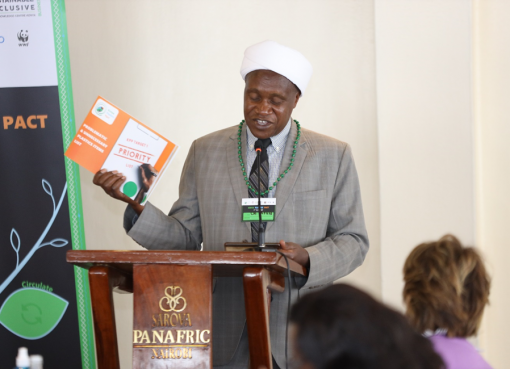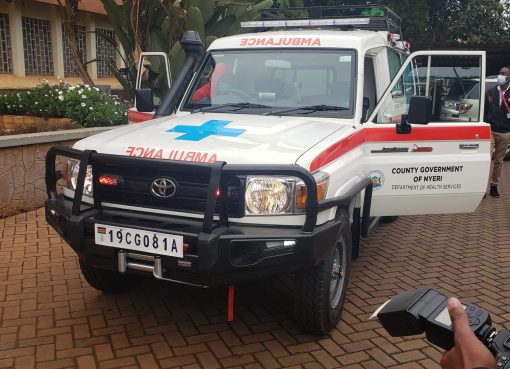Some 10,000 small-holder coffee farmers in the Gusii region have been earmarked by an international non-profit making organization to improve the landscape of their farmlands and supply chains through a process that will restore ecosystems and boost farmers’ incomes.
The organization, Rainforest Alliance, intends to bring together farming and forest communities, companies, government, civil society and other individuals to drive positive change in Gusii region as well as in other areas through a process dubbed ‘regenerative agriculture’.
Addressing the press during the official launch of Gusii Regenerative Agriculture Landscape (GuRAL) Coffee Project in Kisii town, Rainforest Alliance Country Director Marion Nduta Ng’ang’a said their organization ensures the harmony of agriculture business and forests to ensure a thriving business.
Ng’ang’a said Kenya was one among 60 countries in the global south, where the organization assists farmers to get certification through sustainable agriculture standards, resilience building through livelihood strengthening and alternative income generating activities.
The Director noted that partnering with Gusii region in the coffee and environmental sector through the GuRAL project will ensure sustainable coffee production practices using integrated landscape management
approach.
She expressed optimism that the targeted farmers will within two years be able to scale up the initiative to all other parts of the Gusii region.
Ng’ang’a explained that the Alliance was implementing other landscape and community projects in Kenya, especially in the Mt. Kenya area where there is Sustainable Landscapes and Livelihoods (MSULI Program) that is targeting 50, 000 small holder coffee and tea farmers and 1000 forest communities in especially Embu and Kirinyaga Counties.
County Executive committee member for Agriculture livestock and Fisheries in Nyamira County, Alice Manoti, said the partnership will ensure farmers apply best agricultural practices to revitalize Coffee, which is one of the prioritized crops in the area.
Manoti noted that with the construction of industrial parks, the farmers stood to benefit through organized and increased production.
The county executive said the region was ready to embrace environmental management processes required by the international standards, so that produce can penetrate the global market stage without hindrances.
On his part, the Chief Executive Officer for Gusii Coffee farmers’ Cooperative Union, Dr. Robert Mainya, said the union, which composed of the 28 cooperative societies with 72 coffee factories needed the partnership because they might not be able to sell their produce to any country in Europe by 2024 unless they were certified.
He applauded those societies that have already been certified including Kiomoocha, Marani, Nyaturubo, Gesons, Marani, Nyamache and Girango.
Rainforest Alliance which has been in existence in at least 60 countries works to restore the balance between people and nature for both to thrive in harmony.
The project launch follows a decline in Kenyan coffee production by 50 percent over the last 25 years, stagnating at around 40,000 metric tons per year.
According to the Rainforest Project profile, various factors that have led to the decline include climate change, unsustainable water use, aging coffee trees, soil degradation, and the inability of many cooperatives to support members with essential services like soil analysis, training, and financial credit, among others.
The profile states that these factors led to poor demand and supply of the produce, impacting negatively on the household incomes of Kenya’s small-holder coffee farmers.
Rainforest Alliance receives support from JDE Peet’s to address these concerns in the region by scaling market-led landscape and community initiatives rooted in reinstating agriculture best practices .
It states that the desired results will include the restoration of 100 hectares of land in Gusii by the end of the project period, which is 2023–2025, as well as the establishment of agroforestry nurseries and training, among others.
Rainforest Project include include, promotion of regenerative and climate-smart growing practices, private and public sector engagement, the restoration of degraded ecosystems, and the creation of livelihood diversification.
Activities in Gusii will be funded by Jacobs Douwe Egberts (JDE Peets) and Rainforest Alliance, while implementation will be done by Kisii and Nyamira County Governments, Gusii Coffee Farmers Cooperative Union (GCFCU), and Tropical Farm Management Kenya LTD (TFMKe).
The profile also states that Gusii was chosen because it already has 16 certificate holders, red volcanic soils, good rainfall distribution, existing partners, and the presence of other Rainforest Alliance Certified Commodities like tea.
However, there are challenges, including land fragmentation, climate change, ageing coffee trees, soil, water, and environmental degradation, poor water management and conservation practices, harmful agrochemicals, and intense land conversion.
By Jane Naitore





